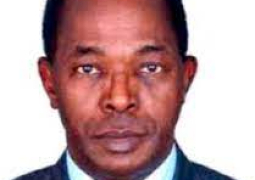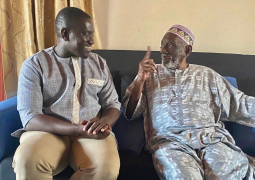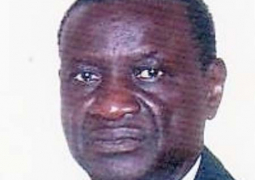Prepared by the Ministry of Education
July 1995
Minister: Hon Satang Jow
PREFACE
On behalf of the Ministry of Education, I am pleased to present the Mid-Decade Review Report on efforts towards Education For All. The report presents the achievements and the continuing challenges of education in meeting the goals of Education For All that the government of The Gambia undertook to pursue in 1990. It records the reactions of the Gambian people to the many and varied programmes being delivered.
As can be recalled, the Plan of Action of the World Declaration on Education For All was seen to be incongruent with the Educational Policy 1988-2003. It was accordingly pursued within the policy framework. The lack of appropriate follow-up action, such as establishing mechanisms for regular and timely collection and analysis of data required for monitoring indicators related to Education For All, was not deliberate but due to several unforeseen circumstances.
The achievements in evidence in this report which are indeed encouraging, confirm the commitmentof The Gambia to set and achieve measurable educational targets and to bring about specificimprovements in the Education Sector.
It is heartening to note that in recognition of the need to fill existing data gaps, grassroots consultations were held nationwide. The successful completion of the consultations, the first of its kind in The Gambia, has evoked a participatory process that would enrich the national database and contribute towards improved monitoring and programming of educational goals. These achievements were possible largely because of the support and encouragement from our partners, namely: UNDP, UNESCO and UNICEF, throughout the process.
This document will be further refined to serve as a working document for a national conference on ' education. The goal of this conference would be to adjust, modify and, to some extent, change aspects of the existing policy based on the feedback received during the grassroots consultations. The result of the national conference will not only lead to a revised policy document but the development of programmes and a master plan of operation, thus giving ascendancy to a national agenda in Education.
The happy coincidence in the process is that the Mid-Decade Review also served as a Mid-Term Policy Review, which made much sense as the two are intricately linked. Accordingly, I pay tribute to The Gambian people whose conscious efforts have yielded all the information recorded in these pages.
Saim Kinteh
Focal Point
INTRODUCTION
Although the current Education Policy 1988-2003 was formulated two years before the Jomtein World Conference on Education, there is much consistency between the objectives and strategies adopted at Jomtein and those outlined in the Education Policy. The policy maps out the framework of our national education development plan from 1988 to 2003.
It focuses on increasing access to basic education (a nine-year cycle) and improving the quality and relevance of education at all levels. The major policy strategies are:
- Restructuring of the school system
- Maximising resources for education
- Training of education sector personnel
- Improving the management of the education sector
The policy focuses on the following target dimensions:
- Early Childhood Care and Education
- Basic Education (Grade 1 - 9)
- Non-formal Education (Adult Literacy)
- Special Education
- Vocational and Technical Education (Skills Training)
Even though girls' education, educational broadcasting and learning achievement are not highlighted as specific target dimensions, there is an adequate acknowledgement of their importance in the policy within the context of basic education. The policy stresses the need for education to have a social function, and special mention is made of equity concerning education for girls.
Following the Jomtien World Conference on Education for All, the Ministry of Education, in collaboration with UNESCO, UNDP and UNICEF, organised a roundtable conference on Basic Education in May 1991. The focus of the conference was to identify the intermediate targets of Education For All and develop appropriate strategies within the framework of the National Policy. The conference also analysed the cost implications of meeting the targets, but actions did not proceed further to organise a donor conference to mobilise such resources.
This report reviews the public and private sector programmes and activities in and out of school. It aims at meeting the learning needs of children, youths and adults in the Gambia under the following dimensions:
- Early Childhood Care and Education (ECCE)
- Basic Education (Grade 1 - 9)
- Girls Education
- Special Education
- Adult Education
- Training in Essential Skills
- Learning Achievements
It briefly describes the Education For All (EFA) goals, targets, the main features of the agreed Strategies and the progress achieved towards EFA. The report concludes with a synthesis of recommendations from the regional consultation workshops to highlight the views expressed at the grassroots towards the future development of educational delivery in this country.
METHODOLOGY
The Ministry of Education coordinated the Mid-Decade Review (MDR) of progress towards education for all through its Planning Unit.
A secretariat comprising twenty-seven persons reflecting a multidisciplinary and inter-sectorialcharacter was formed to guide the review process.
Activities for the MDR commenced with a 2-day review planning workshop for the secretariat, the purpose of which was to:
- ratify the terms of reference for the technical task forces
- design methodologies and strategies for the review exercise.
The MDR guidelines for governments served as a working document at this planning workshop with modifications to suit the desired coverage assessment.
Since the secretariat had recommended that the MDR be decentralised, a one-day workshop was held for all the Principal Education Officers (PEO) and each of the Senior Education Officers in the six educational regions of the country to:
- disseminate information on the adopted methodologies and strategies for the facilitation exercise
- agree on the modalities of identification of participants
- budget for the regional workshops
This second workshop was necessary to ensure uniformity of approach for preparing the MDR report.
The various sub-sectors of the Ministry of Education were also assigned tasks that would together make up the Education sector report on the implementation and achievements of EFA goals based on the country guidelines for the MDR.
The six regional consultations at grassroots levels, scheduled for four days, were designed to enable communities to appraise educational efforts, identify points of departure and make proposals and recommendations. Apart from the team of four facilitators at each workshop, the secretariat had its members attend to observe the various workshops. In addition, three activity coordinators from members of the secretariat were tasked with monitoring the progress of the workshops country-wide. Each coordinator was assigned three workshops.
Finally, three persons (a member of the secretariat plus two others) were commissioned to compile the report. To ensure that the deadline was met, the three had to retreat to attend to the following:
- review relevant literature on the implementation of EFA
- synthesise the regional consultation reports along with the sectoral submissions
- prepare a first draft for submission to the secretariat.
The secretariat met twice to critique the first and second drafts, the outcome of which is the document submitted.
End of Part 1




